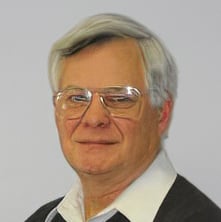This blog has been repurposed from the December 2022 edition of InTech
Automation professionals add value by focusing on what’s important for their employers and guiding them, rather than mindlessly following the latest digital manufacturing buzzwords that suppliers, with their own agendas, put out to sell products. Buzzwords are a form of spin, which in the context of public relations and marketing is the selective use of nuance and facts in communication to change how people perceive the message.
It has become fashionable for marketing and public relations people to spin industry buzzwords to influence the purchase of a supplier’s products. A notable example is the term Industry 4.0 and its variations, including Industry 5.0 and Industry X.0. Suppliers, consultants, and industry organizations are offering various definitions of this increasingly common buzzword, creating confusion. So, it might help to go back to the source.
My friend, Detlef Zuehlke, who many consider the father of Industry 4.0, is an industry consultant, retired professor of industrial automation, and the founder of SmartFactory-KL. He recently commented:
“I must point out clearly that Industry 4.0 was more randomly invented during a German press interview in 2011. So, this buzzword was never exactly defined, or even more, copyright protected. Therefore, anyone can use it in their own sense. Nevertheless, Industry 4.0 was created as a more impressive word for the upcoming fourth industrial revolution. If we follow this path, we have to understand the general meaning of an industrial revolution.
“The first revolution was the era of mechanization, and it took about 100 years before we [could name] the second industrial revolution. This occurred over about 60 years and was characterized by deep changes in electrical energy and communication technologies. Industrial revolution number three was fueled by advances in electronics and then computer technology, and it lasted for about 40 years. So, industrial revolutions are changing our lives over decades.
“Furthermore, [these revolutions] are not just covering technologies but also advances in new businesses and applications. Following this track, we may expect perhaps 30 years for the fourth industrial revolution characterized by the IoT [Internet of Things]. Therefore, I don’t like using the term Industry 5.0, because it suggests the next industrial revolution is at the front door already.
“Coming back to my introductory comment on the buzzword, I guess we have to change the viewpoint. As Industry 4.0 was already a marketing phrase, so too is Industry 5.0. And I am pretty sure we will see Industry 6+.0 popping up. As the pioneer of what was called Industry 4.0, I can live with this marketing-driven view. As a scientist, not! I don’t like Industry X.x at all. We should not guide our publications by buzzwords, but by remarkable scientific content.”
I certainly agree with my friend Zuehlke, and I have learned much from him over the years. There are valuable and useful nonvendor architectural models and standards, including the RAMI 4.0, Reference Architecture Model Industrie 4.0 (Industry 4.0), developed by the German Electrical and Electronic Manufacturers’ Association (ZVEI) to support Industry 4.0 initiatives.
It is understandable that suppliers are enthusiastic about their new products, but marketing people are not technical engineering people. Clearly, industry is shifting toward industrial digitalization and other concepts embodied in Industry 4.0, and automation professionals are serving their organizations as important change agents. Before investing in new software, hardware, and systems, they need to determine—specifically for their organizations—important factors, including goals, core ideas, concepts, and the logic of the manufacturing shift, to be competitive and profitable. Then, regardless of buzzwords and spin, engineers must perform engineering analysis to determine the best products and systems to achieve the goals.
Automation professionals must focus on how to improve factors like process performance, reject rates, inefficiencies, downtime, and bottlenecks for better performance, efficiency, profitability, and industry competitiveness. By focusing on these results, technical professionals can sidestep the spin.




